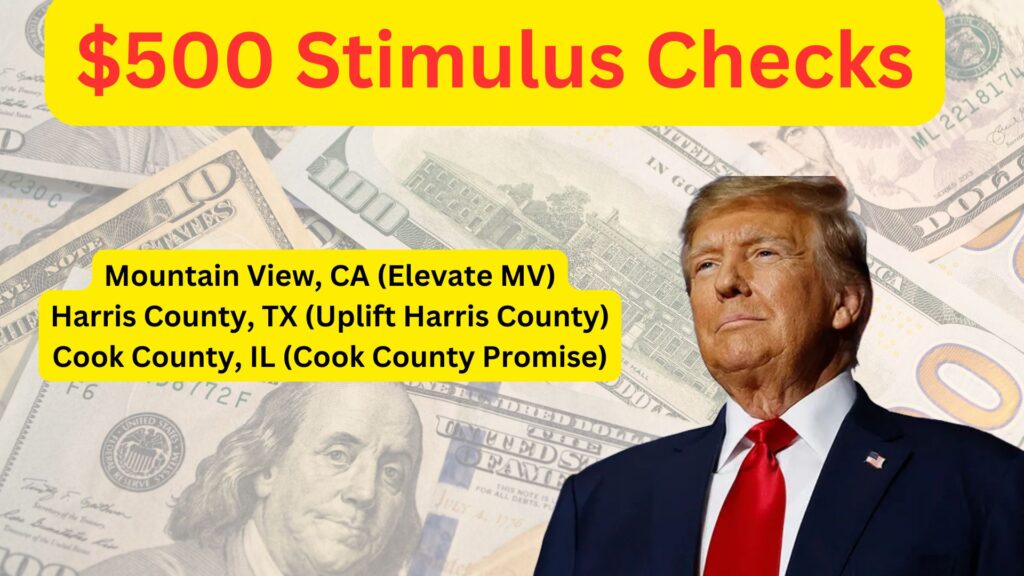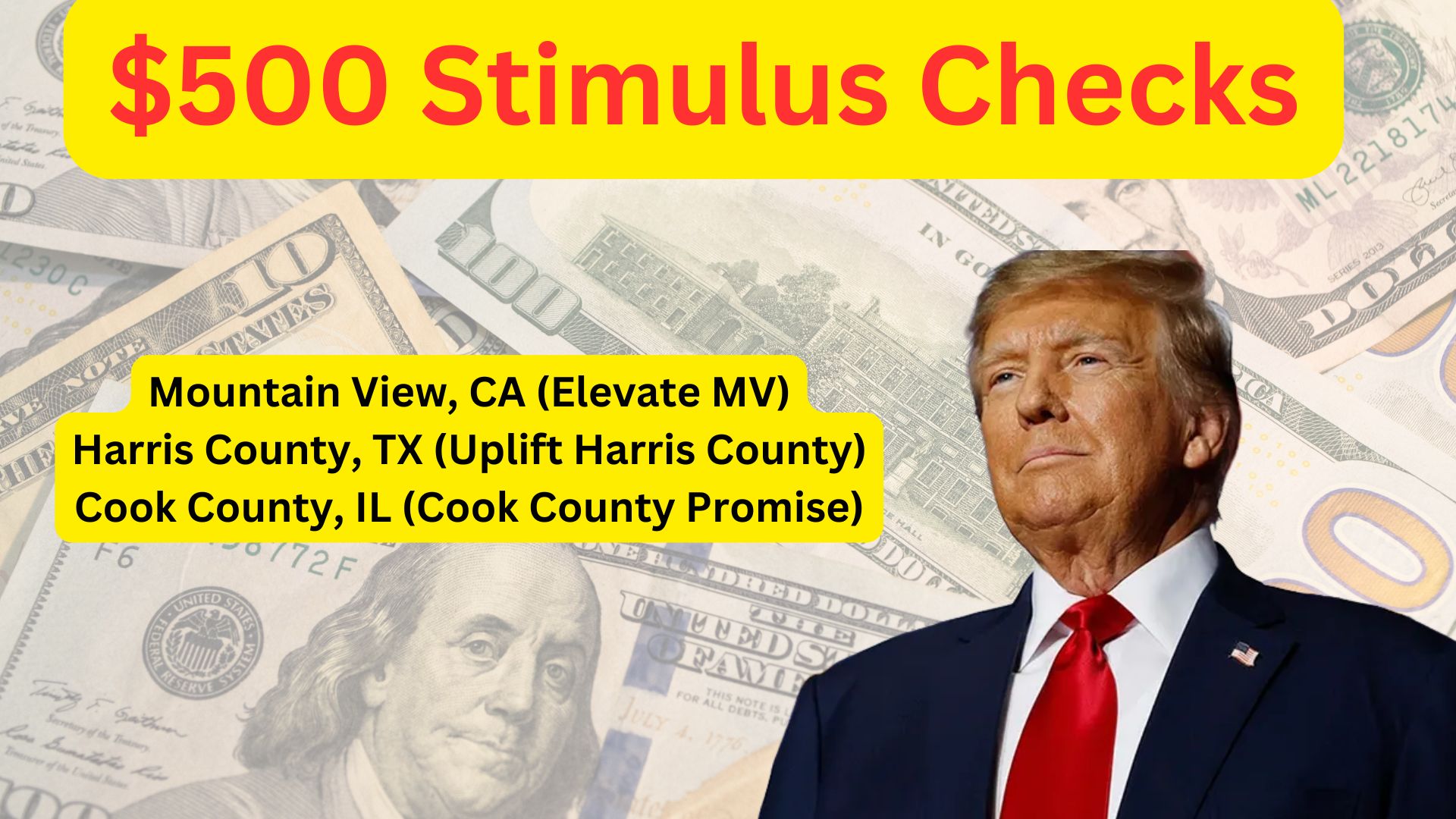As the economic aftershocks of the COVID-19 pandemic linger, the U.S. government and local authorities have launched innovative financial aid programs to support vulnerable citizens. Among these initiatives, the $500 monthly stimulus checks stand out as a lifeline for low-income families, ensuring continuous support rather than one-time assistance.

Overview of the $500 Stimulus Checks 2025
These programs aim to address long-term financial hardships, giving beneficiaries the freedom to spend the funds as they see fit, whether for daily necessities, bills, or savings. Here’s a detailed look into the $500 stimulus checks for 2025, their eligibility criteria, and application process.
| Program Name | Monthly Stimulus Check |
| Implemented By | Local US Government / State Authorities |
| Eligibility | Vulnerable, low-income households |
| Amount | $500 per month |
| Duration | Varies by state (18 months to 2 years) |
| Official Website | irs.gov |
Eligibility Criteria
Each state or local government determines its own eligibility requirements for the stimulus check. Common criteria include:
- Applicants must reside in the area offering the program.
- Income should fall below a specific threshold, often tied to the Area Median Income (AMI) or Federal Poverty Level (FPL).
- Some programs prioritize caregivers, pregnant women, or families with children.
- Proof of financial hardship during COVID-19 may be required.
Examples of State-Specific Criteria
- Mountain View, CA (Elevate MV): Income below 30% of AMI; preference for pregnant women and caregivers.
- Harris County, TX (Uplift Harris County): Income below 200% of FPL, with priority for COVID-19 survivors.
- Cook County, IL (Cook County Promise): Income below 250% of FPL; no prior participation in similar aid programs.
How to Apply
Applying for the $500 stimulus checks is straightforward:
- Check the program details on the respective authority’s portal.
- Confirm you meet the income, residency, and demographic requirements.
- Prepare proofs of residency, income, and any other necessary documentation.
- Fill out the online form accurately and submit it.
- Authorities will verify your details and notify you of your application status.
Why These Checks Are Unique
Unlike traditional one-time federal stimulus check, these monthly payments provide sustained financial support. Beneficiaries have the flexibility to use the funds as needed, be it for groceries, utilities, or unexpected expenses. This consistency empowers recipients to manage their finances better and fosters long-term stability.
FAQs
Q: Are the $500 stimulus checks only for families?
A: No, while many programs prioritize families, individuals meeting the eligibility criteria, such as low-income earners or caregivers, can also qualify in most cases.
Q: Can I apply for stimulus checks from multiple states or programs?
A: No, you can only apply for the program in the state or county where you reside. Additionally, some programs prohibit participation if you’ve benefited from similar aid previously.
Q: Do I need to repay the $500 stimulus checks?
A: No, these payments are government assistance and do not need to be repaid. However, they may need to be reported on your taxes depending on the program.
Q: What documents are required for application?
A: Commonly required documents include proof of residency, income verification, government-issued ID, and evidence of hardship, such as job loss or reduced income.
Q: If I don’t have internet access, how can I apply?
A: Many programs offer alternative methods, such as in-person applications at designated local offices or assistance through community organizations.
Q: Can I spend the $500 on anything I want?
A: Yes, there are no restrictions on how the funds can be used. Beneficiaries are encouraged to spend the money on their most pressing needs.
Q: When will I receive my first payment after approval?
A: Payments typically begin within 30-60 days of approval, but timelines may vary depending on the program’s processing speed.
Q: Are retirees or senior citizens eligible for these payments?
A: Yes, some programs include retirees and senior citizens, especially those with limited income. Check the specific program details in your area for eligibility criteria.
Q: Can undocumented immigrants apply for these checks?
A: Eligibility for undocumented immigrants depends on the program. Some initiatives are inclusive, while others require proof of legal residency or citizenship.
Q: What happens if my financial situation improves during the program?
A: Most programs require ongoing eligibility verification. If your income exceeds the threshold, you may no longer qualify for future payments.
Q: Is there a deadline to apply for these programs?
A: Yes, each program has its own deadline. It’s important to check with your local government or the program’s official website to apply on time.

